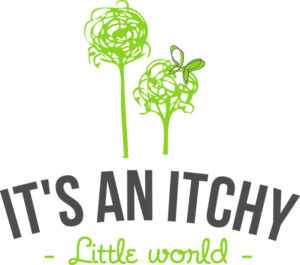Going Gluten-Free for Asthma, Eczema and Your General Health

By: Mitchell Medical Group
Gluten-free food has always existed, and so have gluten allergies. But it hasn’t been until somewhat recently that people have decided to cut gluten completely out of their diet for weight-loss reasons, or simply because they just want to jump aboard the new gluten-free fad.
In fact, gluten-free eating has become so popular, some people may have forgotten that there actually is a largely positive effect of switching over to a gluten-free diet besides losing weight.
According to Dr. Dean Mitchell, an allergy expert, eating gluten can cause what is referred to as “gluten brain.” Your brain health deteriorates as a result of consuming too much gluten – mainly because today’s wheat is highly processed – which can cause overall fogginess, memory loss, and a lack of energy.
But the effects of gluten don’t just stop at your brain. Every part of your body is at risk when it comes to gluten, including your skin and sinuses.
If you’re one of the several million people who suffer from eczema, it may be linked to gluten sensitivity. Since it’s found that eczema occurs three times more frequently in celiac disease patients than in those who don’t have celiac disease, there could be a direct correlation between gluten and an eczema flareup.
It’s advised that those who have eczema, but aren’t sure if they have a gluten sensitivity, should get tested. Even if they don’t have celiac disease, their skin still may benefit from omitting gluten from their diet.
Aside from gluten affecting skin, it can also cause an onset of allergies, which shouldn’t be confused with a gluten intolerance. Someone can be intolerant to wheat products and can get violently ill from consuming them, while others can actually be allergic to wheat.
If you consume a great amount of gluten products and often find yourself with mild allergy problems – sinus congestion and an excess of mucus – consider cutting gluten out of your diet to see if your symptoms let up. When you have an allergy to wheat or other gluten containing grains, it can actually cause your mucus membranes to swell, bringing on the classic symptoms of a sinus infection. But of course, symptoms can be much more serious, even leading to anaphylaxis, if you have a true allergy to wheat.
Another issue that can be caused by a sensitivity to gluten – Asthma. While environmental allergies can be impacting your asthma, you should never rule out the possibility that food can also be causing it, especially wheat. According to the Gluten Free Society, there are asthmatic patients who didn’t even need medication once it was discovered that their asthma was a direct result of gluten sensitivity and gluten was removed from the diet.
If you suspect that you have a gluten sensitivity or that your eczema or allergies are a result of consuming too much gluten, it’s important to get tested, even if it turns out you’re not intolerant to gluten. Cutting wheat products out of your diet – whether or not you’re allergic to them – can still bring plenty of benefits. Because even if you aren’t getting sinus infections or skin conditions from gluten, you can still prevent yourself from developing gluten brain.
Bio: Dr. Dean Mitchell and Dr. Ricki Mitchell practice at the Mitchell Medical Group specializing in immunology and integrative medicine. Read more about their practice on their website. You can also connect with them on Facebook and Twitter.
FROM: Asthma, Contributors, Eczema

I just discovered your blog, and appreciate all the good tips! I wanted to offer a bit of feedback regarding my experience going gluten and dairy-free, which I did for a few months. Now, I understand that eliminating pasta and ice cream (and other yummy stuff :>) is supposed to be the greatest thing since sliced bread (no pun!) when it comes to improving eczema; but, it really didn’t do the trick for me.
I definitely saw some benefit, sinus-wise, going dairy-free; but, didn’t see much difference going gluten-free. Like so many products and diets I’ve tried, I had high hopes that dropping cheese and bread would make a huge difference to my eczema.
What I learned from this experiment, is to ‘think like a scientist,’ and be cool and collected, instead of being emotionally over-invested in the outcome, and then feeling crestfallen when things don’t work out as planned.
That’s my tip to share, then: Try new things, but be dispassionate about the outcome. I guess it’s just common sense; but, it took me a while to get there :>)
Hi Dean – That’s excellent feedback! Thank you. And you’re definitely right, removing dairy and gluten isn’t right for everyone. It’s a matter of trial and error to determine what’s best for each of our bodies. Unfortunately, it takes lots of time usually to determine triggers and find relief, but it’s well worth it in the end. I hope you’ll find what’s best for you soon. Jennifer
Sharing my experience:
When people say gluten free, I am very sure they mean Wheat gluten free. Rice is fine for me.
If we stop eating wheat product today, it will take a while ( about two-three weeks) before we will notice any improvement. This is because it takes some time for our body to throw out the large protein molecules, and our body uses skin to throw out these large wheat protein molecules. The white powder that comes out when we scratch the skin are skin cells with gluten molecules.
It took me eight years to discover that the main culprit to my psoriasis was gluten – by trial and error method. I wish I had read this article earlier.
Another recent discovery: Coffee makes psoriasis worse, so think about it. It made my worse.